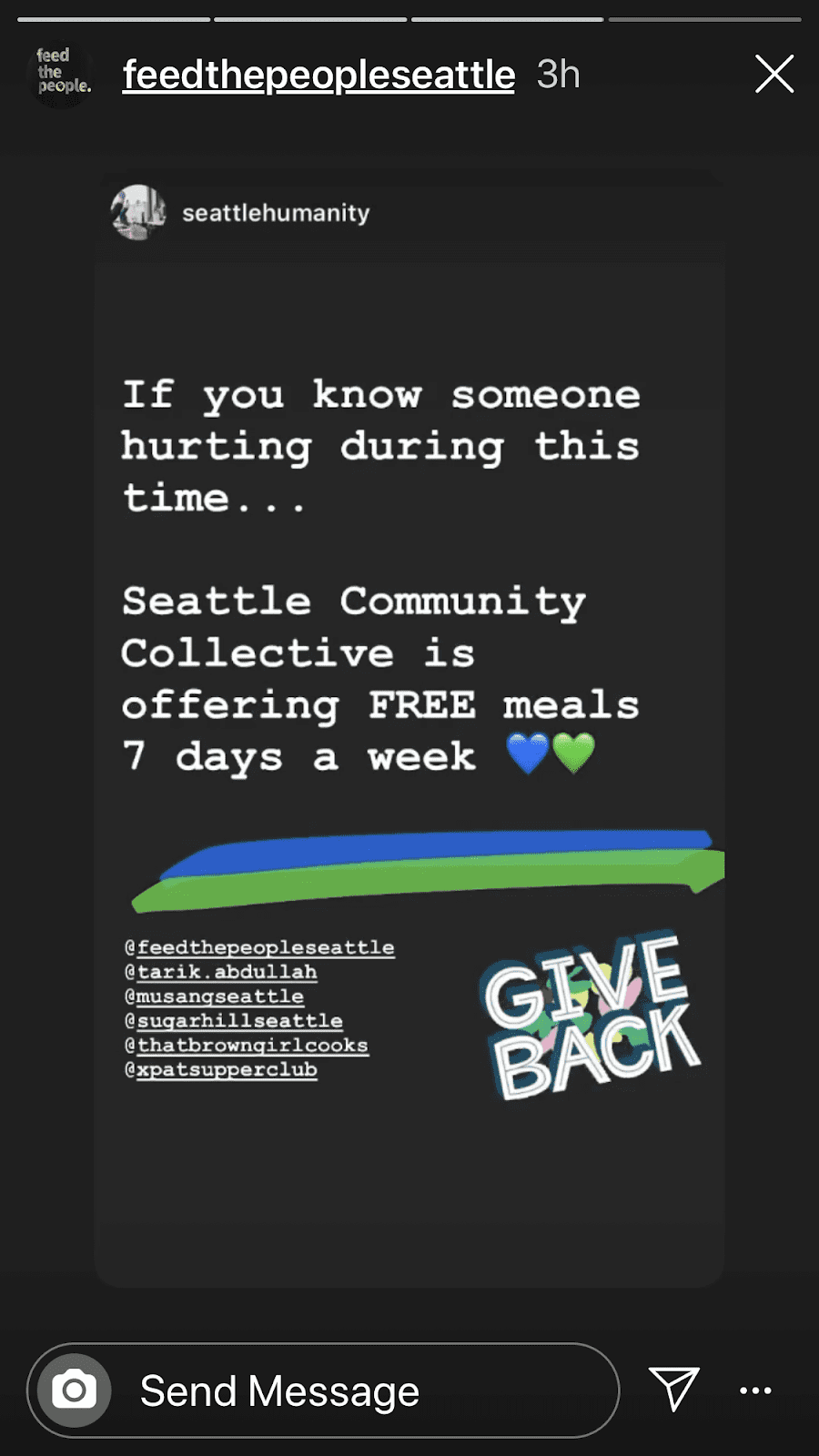Two Reasons I Think Single-Payer HealthCare Needs to Happen
Warning: Rant coming in 3, 2, 1
There have been times in my life when I have been so f%*king DONE with our country’s convoluted system of healthcare that I wasn’t sure whether to cry, throw myself on the floor and pound my fists until they’re black and blue or scream bloody murder from the highest peak I can find.
I know lots of folks who can relate.
Seriously. Socialized medicine, folks. I mean it.
I know it won’t make everything easy-peasy, simple and clean, but it can’t make things worse.
When I went to college, I was determined to become a pediatrician. That’s all I had wanted to be since I was in elementary school and I could see it happening. I took organic chemistry, cell physiology, medical ethics classes. I struggled with some more than others, but I loved them all. My senior year, I studied for and took the ridiculously long MCAT and spent hundreds of dollars applying to medical schools and then decided to take a year off to work in the field before deciding whether to go ahead and go.
I ended up working for several years as a surgical assistant for a small group of doctors and I learned about the other side: the business of medicine. I hung out with the business manager and discovered how to tweak our diagnosis codes and pore through the (then) printed catalogs of allowed procedures to bill things so they would get paid for. When patients came in for emergency surgery, after the OR was scrubbed of blood and every last instrument was cleaned and put in the sterilizer, we convened for a quick meeting to determine just how to position the procedure to whichever insurance company might be involved so that we could have a higher chance of being paid. This not only determined which codes we used to bill, but it often meant that the doctor had to dictate his notes in a particular way so that, in case the insurance adjuster (not a physician or a nurse in most cases) asked for them, they would fully support the billing we submitted.
During those years, I discovered that if what I truly wanted to do was build relationships with patients that impacted their lives and their health, going to medical school was not the way to do it. As the surgical assistant, I spent more time with the patients than anyone – pre and post-op – and heard about the other things going on in their lives as I changed bandages and removed stitches. The doctors, while they may have liked to have more time to spend with patients, spent the majority of their time maximizing insurance payments by dictating notes, seeing a ridiculous number of patients per day, scheduling back-to-back surgeries to maximize OR usage, and occasionally getting on the phone with an insurance company who was refusing to pay for more than two scalpels or two hours of anesthesia to defend their choices.
Needless to say, I chose not to go to medical school. And in the next several years, I spent time fighting with insurance companies for a physical therapy business, a dermatologist, and the state mental health division, not to mention myself and my family. I learned just how insurance companies make rules that increase their profits and narrow choices for their customers. I discovered that the high-level relationships that are made between drug companies and major hospital groups and insurers almost never benefit the health or wellness of a customer unless it happens to be in alignment with the bottom line of the companies involved.
A few weeks ago I called a doctor’s office for a family member to get diagnosis and procedure codes for an anticipated surgery. I then called the insurance company armed with information to ask whether these codes were considered covered procedures. After nearly an hour on the phone I came away with a vague answer that included information about the deductible and the potential coverage depending on a number of variables over which we have no control. If the doctor is “in network” (he is), his services are covered at X%. If the hospital is “in network” (they are), their nursing and OR services are covered at X%, as long as it is a day-surgery. Overnight stays are covered at X-Y%. If the anesthesiologist is “in network” (we have no control over that and no way of knowing until the day of the surgery who that person might be), their services are covered at X%, but if that doctor is “out of network,” services are not covered at all. Not only that, but on “out of network” providers, the amount the patient pays is not applied to the deductible or the out-of-pocket maximums for the year (presumably because we had the audacity to go rogue – even though we have no choice in the matter). There are further decisions about OR supplies (one would think that those would be considered part of the surgery facility charge, but, no, it seems they are billed separately), so if the surgeon chooses a more expensive bandage or stitches, it is likely those won’t be covered at all. I could go on, but you get the gist.
This morning, I phoned our dentist’s office to discuss a particularly high bill we received and after another hour of talking with them and the insurance company, I was told that Lola’s emergency dental procedure last summer while we were on vacation was not only not covered (out of network), but none of the $500 we paid for it were applied to our deductible (out of network). I calmly asked the representative,
“So, this was literally an emergency. As in, the plane touched down, we stopped at the pharmacy to get pain killers for our daughter, and as soon as we hit the hotel we asked the concierge to recommend a dentist who could see her ASAP (Saturday morning in Hawaii). First of all, does your insurance company have in-network providers in Hawaii? And if so, am I expected to call all of the islands to find one who happens to practice on the weekend and is willing to see my daughter? Is that a thing I should have done?”
“No. It’s not a thing,” he says.
“Explain that to me, please.”
“Was it a medical emergency? Because if it was, you should have run it through your medical claim instead of dental, and then it might have been covered even if it were out of network. But it wasn’t, and it’s too late now. It was processed as out of network and that’s how it’s going to stay. And, no, we don’t have any in-network providers in Hawaii.”
So, ultimately, it’s my fault that I didn’t sell it as a medical emergency? Or is it the dentists’ office fault? The dentist who got up on a Saturday morning and spent three and a half hours with Lola patiently tending to her and then calling us that night to make sure she was ok.
And why wasn’t my out of pocket amount applied to the deductible? Because we went rogue. Because we didn’t follow the rules. Because, if it had been, the insurance company (Premera Blue Cross, btw) would have been on the hook for all the rest of the follow up procedures that have taken place as a result of this situation in the last nine months. But they aren’t, because it all started with us needing dental care somewhere else in a hurry. When I pointed this out to the representative this was his response:
“Well, you just really want to have your dental emergencies when you’re at home. That’s the best way to do it.”
Duly noted.
Socialized medicine, folks. Single payer. The same rules for everyone.
Health care (even dental care). It’s a basic need.






I couldn't agree more Kari. It is so damn frustrating. Over the several months since my stroke late last year, I have essentially spent most of my time away from my place of employment, contacting doctor's offices, my insurance, and pharmacies and, like you, I still get nowhere and wind up paying exorbitant medical fees, considering how much coverage I currently pay for each month. When people need insurance the most, like after an emergency, it seems that they pull out all of the stops in providing as much paperwork and bureaucratic nonsense as possible – during the times when a patient needs time to focus on recuperating – not worrying about their coverage. I do not even comprehend an argument against a single payer system.
I live in Canada (we call it Universal Health Care) and I think it works well. Yes, there are problems. It isn't without fault. But I had a Hysterectomy in January and then in April A Urodynamics test and then a Cystosopy. The only thing I paid for was the parking.
Everyone. Everyone deserves medical care and it should not be given on ability to pay but by need.